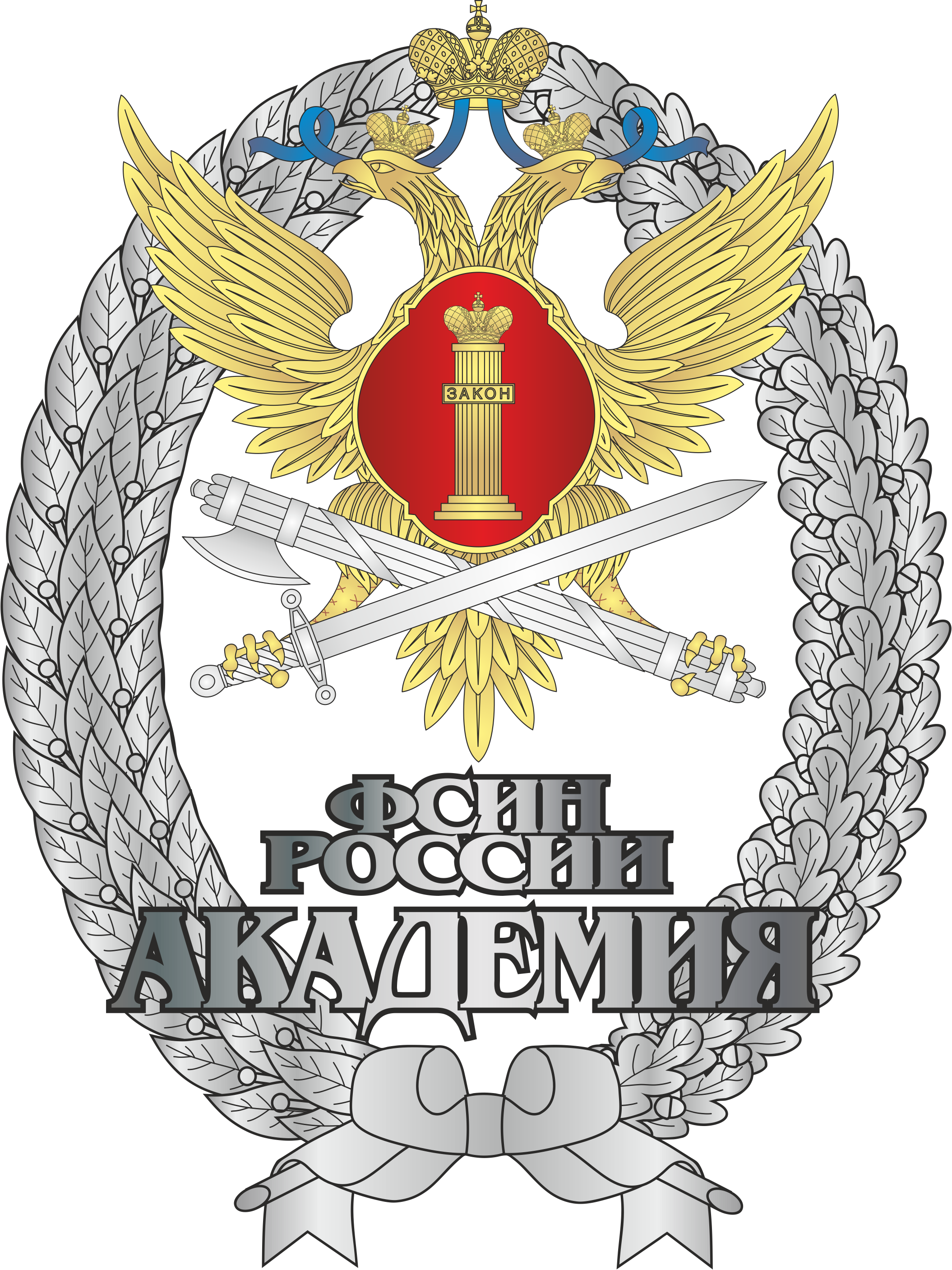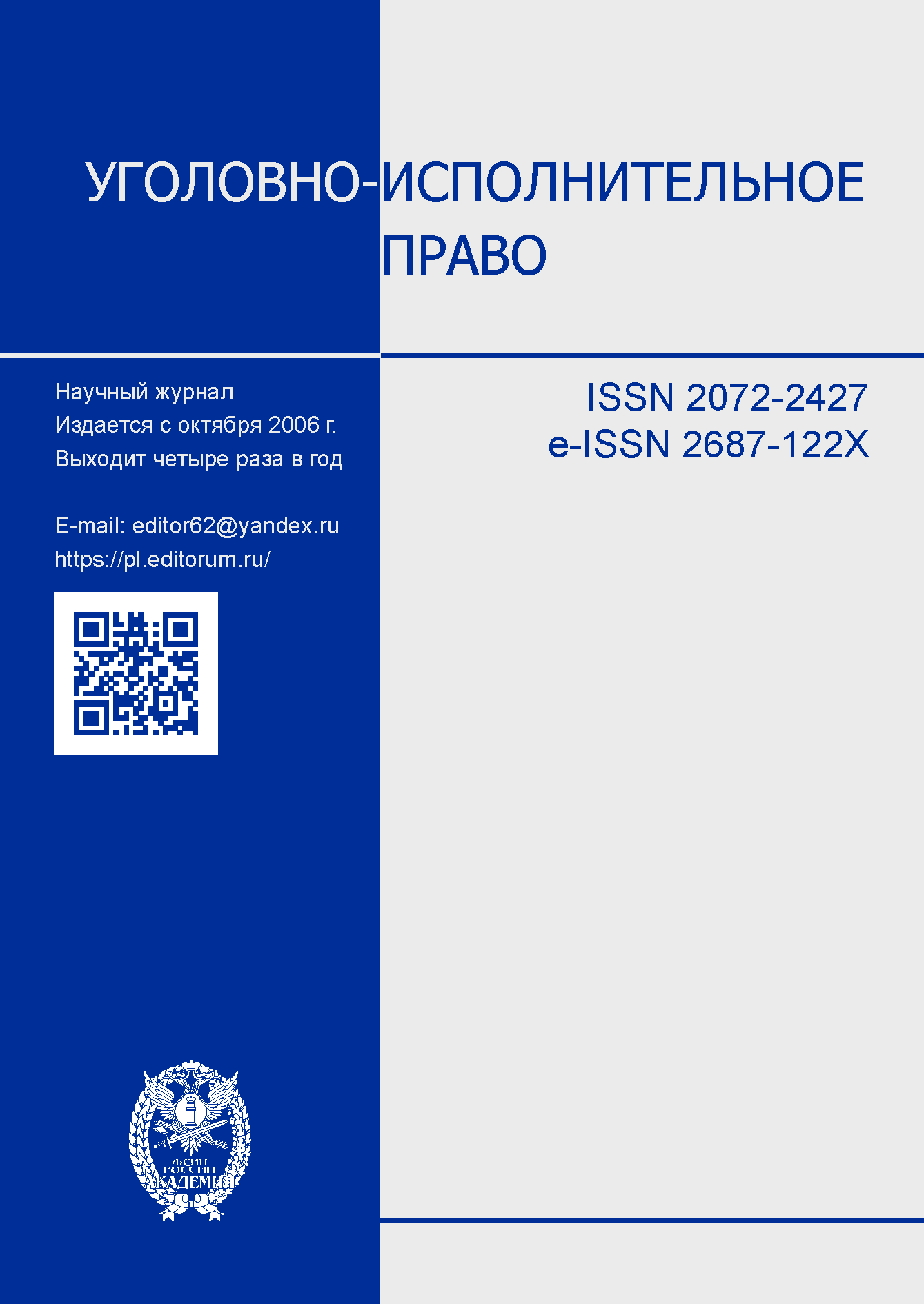UDC 34
According to tendency towards reduction of «prison population», which was traced in the criminal-legal and criminal-executive policy of the Russian Federation, the scientific community must tirelessly draw the attention of the legislator and the court to punishments which are alternative to deprivation of liberty (imprisonment). One of such punishments, which, moreover, has great potential, is the restriction of liberty.Courts in their practice underestimate the effectiveness and positive features of restriction of liberty and, when imposing punishment, give clear preference to deprivation of liberty for a definite period, appointing a real, conditional or postponed order of completion. Assigning a conditional sentence or postponement of completing a sentence to a person, courts, in fact, assign him a variation of restriction of liberty Restriction of liberty differs from aforenamed measures of a criminal-law nature by its legal essence as a punishment, as well as the state of conviction (criminal record) after completion. Legal restrictions, which are pertain to all three measures of a criminal-legal nature, are mostly duplicated (for restriction of liberty and conditional sentence) or are of a particular case of care and protection of childhood (for postponement of completing a sentence).Existence in the Criminal Code of the Russian Federation of punishment in the form of restriction of freedom allows to doubt quite reasonably expediency of preservation in the law of conditional condemnation and a delay of serving sentence which are close to restriction of freedom in the order of execution and to the volume of the elements of retaliatory contents (quoted by court of terms). It is represented that restriction of freedom can be improved by means of expansion of legal grounds of its application and absorption by him of conditional condemnation and a delay of serving sentence.At evidence-based and properly an organized order of execution (including with ensuring normal functioning of modern control systems for convicts) restriction of freedom - the worthy and demanding smaller expenses alternative to real serving of imprisonment. This punishment in full degree corresponds to the main directions of modern criminal policy, and expansion of practice of his appointment, in our opinion, is capable to serve the purpose of improvement of a criminogenic situation in society.
restriction of liberty, deprivation of liberty, conditional sentence, postponement of completing a sentence, punishment, execution of punishment, criminal legislation, penal executive legislation
1. Struchkov N. A. Sovetskaya ispravitel'no-trudovaya politika i ee rol' v bor'be s prestupnost'yu. Saratov, 1970. 271 s
2. Melent'ev M. P. Kommentarii k Ugolovno-ispolnitel'nomu kodeksu Rossiyskoy Federacii i Minimal'nym standartnym pravilam obrascheniya s zaklyuchennymi / pod obsch. red. P. G. Mischenkova ; vstup. st. M. P. Melent'eva. M., 1997. 795 s
3. Struchkov N. A. Kurs ispravitel'no-trudovogo prava. Problemy obschey chasti. M., 1984. 240 s
4. Gilinskiy Ya. I. Ugolovnaya politika obschestva postmoderna: aktual'nye problemy // Aktual'nye problemy kriminologii, yuridicheskoy psihologii i ugolovno-ispolnitel'nogo prava : sb. nauch. st. M., 2016. 222 s
5. Otchet o chisle privlechennyh k ugolovnoy otvetstvennosti i vidah ugolovnogo nakazaniya / Sudeb- nyy departament pri Verhovnom Sude Rossiyskoy Federacii. URL : www.cdep.ru/userimages/ sudebnaya_statistika/2015/k4-svod-2015.xls (data obrascheniya: 15.03.2017)











